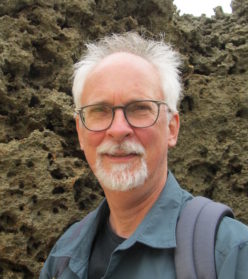I was delighted to find that Analog Science Fiction and Fact published my story, “A Cup of Dirt” in their June 2013 issue; and – as the lead story! That’s quite an accomplishment and I’m extremely proud of it. Analog is one of the leading Science Fiction periodicals and I am frequently reminded that its authors are an elite club – self-referenced as the Analog Mafia.
If you haven’t already read “A Cup of Dirt”, you’ll find a short story set on a space station orbiting the earth. Enzo, an engineer from Italy working on a space station module install, gets bored and accepts a challenge to create dirt – soil – on the station. What’s the challenge? Space stations are industrial clean rooms. Dirt ruins experiments, clogs filters, breaks machinery and ultimately threatens lives, if not profitability. Enzo is actively breaking the rules on a dare. We’ve got secrets. We’ve got intrigue. Finally, we’ve got young station workers in search of romance. Forget the dirt – romance is the main problem.
The story is written in my comfort zone of hard science fiction. No laser weapons, no faster-than-light travel. Everything works according to common laws of physics. At some point, I may stray outside of these self-imposed rules, but for this story, I chose to operate in an entirely predictable world. It does mean I have to be careful with staging. Space station employees can’t just walk across the room unless there is gravity – and since we haven’t discovered artificial gravity, I have to be sure that my scenes acknowledge this fact.
At one point, two characters go to visit a third character in a maintenance room. Pressurized room on a space station is at a premium, pressurized rooms with gravity even more so. The easiest way to create gravity is with a hub-and-spoke spinning station, which places gravity rooms on the outside of the hub. Maintenance rooms are most likely located in one of the spokes. In-between are passageways with gravity that reduces as you climb “up” towards the center. Knowing the Analog crowd, I did my research to make sure the characters would do the appropriate actions. I did find a benefit – a floating ponytail plays an amusing part in the ensuing love triangle.
I originally conceived the story in the fall of 2010 when Janell and I were visiting World Fellowship, a camp she worked at during her college years. The camp staff maintains a collection of gardens, growing local produce and using them to produce incredible meals. There is nothing like the intense taste of a locally-grown tomato and for whatever reason, I transported the camp to the confines of a space station – including the staff and their love of fresh food.
A challenge of science fiction is to find the excitement hiding in the dry world of research. Science can be tedious – research requires repeatability and documented results – which implies doing the same thing over and over and over. Not as exciting as a high-speed chase through an asteroid field. My solution as an author is to look alongside the science at the people who do it and are affected by it. Yep – sociology is an exciting field when people’s lives actually depend on it. In Cup of Dirt, I accepted the tedium of life on a space station. Any competently-run station will be a boring place. Regulations and double-checking every checklist is job one. Nobody wants drama in space and you’re not allowed to make microwave popcorn – smoke from burning popcorn in a space station is a big, damn, deal.
The camp we were visiting provided me with a staff of twenty-somethings ripe for some interesting sociology. Shakespeare did wonders with this demographic and if you’re even halfway paying attention, you’ll notice I was inspired by his comedic romances.
The characters were almost handed to me completely fleshed out. With some tweaks, you’ll find the 2010 summer staff of World Fellowship well represented in this story. I’ve never met them – but I do have their pictures from the staff wall. I’ve found that once I can find the photo of a character, writing their backstory is easy. Writer tip: use google image search to find portraits of your characters.
I had assumed space stations would have international staff and would include Russians, Americans, Japanese, French, and Italians – probably more nations as well. So I dived in. And blundered around, making a terrible mess of the whole thing. I had Russians shouting “Skol!”, and mispronouncing swear words. When I first submitted the story to Analog, Stan Schmidt kicked it back, requesting that I check my use of the Russian language. It takes a village to fix ham-handed language mistakes; in my case, Alex Shvartsman, writers from the codex writers forum, neighbors, and friends. It was actually a lot of work getting everything fixed up and believable.
I’ve been accused of portraying the women in the story as vacuum-headed sexpots. Granted, there is a lot of sensuality being traded around. But don’t get me wrong – I’m solidly in the camp of realistic portrayal. Nobody goes outside in a flimsy spacesuit, no matter what kind of body they might have to show off to the bug-eyed aliens. That would just be bad space-station policy.
But the Sidorova sisters are sexy – and smart – and human. Just like the twenty-somethings I hung out with during my summers at Camp Widjiwagan in Northern Minnesota. Of course, they are amped up – it’s a short story after all and everything needs to be louder, brighter and quicker than in real life. Take a look at Captain Jerwin if you think all the women are objectified. I’d strongly advise you don’t mess with her during a Senate hearing – or on the Judo mat.
Finally, I am really pleased by the reviews. Locus, SFRevu, and Variety SF all gave it favorable comments. Another bonus writers dig on.

